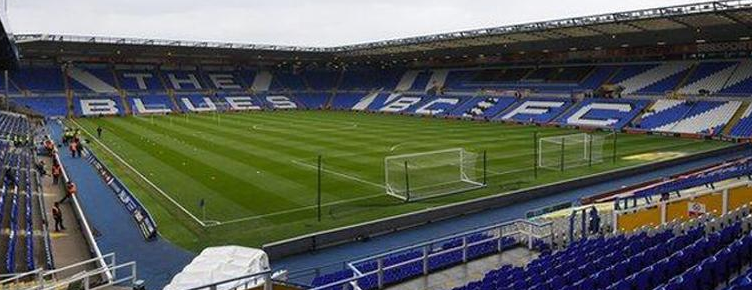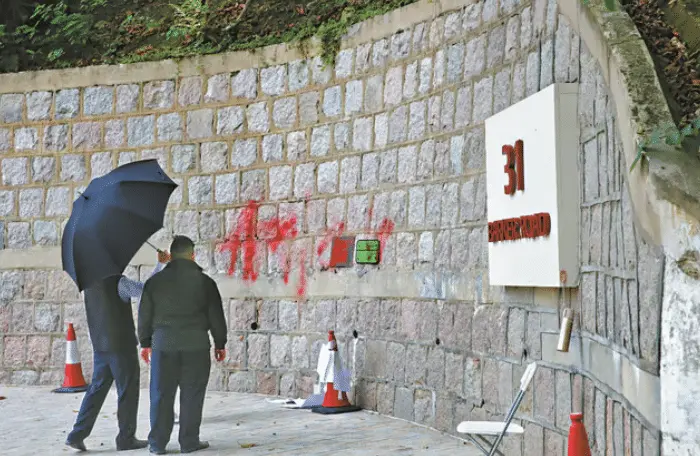Table of Contents
Chapter 1: Business Enlightenment as a Hairdresser (1960-1997)
Carson Yeung’s entrepreneurial genes were first evident in the hairdressing industry. His early experiences are a model of grassroots counterattack. Coming from a humble background, he initially worked as a hairdresser in Hong Kong. In the 1970s, he joined Hong Kong's top salon, Le Salon, which is located at 15 Landmark, Queen's Road Central, Central. This high-end salon in Central is famous for serving social elites and wealthy wives. During this period, Yang Jiacheng not only honed his skills, but also established initial connections with the upper class. With his outstanding skills and service attitude, he gradually emerged in the industry.
Known for charging over HK$1,000 per hour, its clients include political and business celebrities and film and television stars. According to industry insiders, Yang Jiacheng quickly accumulated a high-end network of contacts with his keen fashion sense and superb communication skills, which laid an important foundation for his future cross-border investments.
In 1994, Yang Jiacheng seized the opportunity of the booming tourism industry in Hong Kong and opened the first personal hair salon "Vanity" in the Royal Garden Hotel in Tsim Sha Tsui. The hair salon’s location is very strategic: Shop B1 in the basement of The Royal Garden Hotel in Tsim Sha Tsui, adjacent to The Peninsula Hotel and Harbour City, precisely targeting Japanese and Korean tourists with strong spending power and the local wealthy class. Its "personalized service" model innovatively introduced a membership reservation system, with a single haircut priced at HK$800 (the average price among peers at the time was about HK$200). It was also the first to provide value-added services such as champagne reception and styling photography.
According to people familiar with the matter, Yang Jiacheng is not just a behind-the-scenes operator. He often cuts hair for important clients himself, demonstrating his dedication to his career and professionalism. When he opened a branch in the New World Hotel (now the Renaissance Kowloon Hotel) in 1997, he had established a database of 3,000 VIP customers and his annual turnover exceeded HK$20 million, which laid the foundation for his further business development.
Chapter 2: The thrilling leap of the capital market (1997-2002)
However, what really made Yang Jiacheng's wealth take off was not the hairdressing business, but his stock market investment before and after the Asian financial crisis in 1997. At that time, he moved to the Macau market and focused on speculating on penny stocks (low market capitalization stocks). With his keen market sense and luck, he made his first pot of gold in the chaotic financial environment. This funding laid the foundation for his future business expansion and also marked his transformation from a technical talent to a capital player.
Entering the Macau stock market in 1997 is seen as a key turning point. Yang Jiacheng accurately grasped the policy dividends of the special economic zones during the transition period and made huge profits from gaming concept stocks through "penny stock leverage operations." According to the archives of the Monetary Authority of Macao, the share price of Nam Van Development (code 0875) which he traded soared by HK$4271 million between March and October 1997. During this period, he created market enthusiasm through "left hand to right hand" cross-trading and finally successfully cashed out on the eve of the Asian financial crisis, with an estimated profit of more than HK$200 million.
This experience laid the foundation for his capital operation style: high risk preference, policy sensitivity and quick decision-making. Promoted in 2002Hongfeng International (2309.HK)Listed on the main board of Hong Kong, the prospectus shows that the company is registered in the Cayman Islands and adopts the VIE structure to circumvent foreign investment restrictions. The initial price-earnings ratio is as high as 38 times, and the funds raised are HK$120 million, mainly used to expand the Dongguan clothing production base. It is worth noting that although the company is positioned as a garment trader, its annual report shows that the proportion of securities investment income to net profit exceeded 60% between 2003 and 2005, reflecting its capital operation nature.

Chapter 3: Strategic layout of football territory (2003-2009)
Yeung Ka Shing's ambition in the sports industry began when he took over the Hong Kong Rangers Football Club in 2003. Facing this old team founded in 1958, its reform measures include: introducing a Brazilian youth training coach, establishing a player exchange mechanism with Shenzhen Red Diamonds, and striving to upgrade the night lighting equipment at the Mong Kok Stadium. Although the company ultimately failed to break through due to institutional limitations of the Hong Kong Football Association, the accumulated international sports management experience became a springboard for its expansion into Europe.
Yang Jiacheng's journey to investing in English football was not smooth at first. He tried to buy Sheffield Wednesday in the English Football League and Reading in the Premier League, but ultimately failed.
On June 29, 2007, he acquired 29.9% of Birmingham's shares through Hongfeng International for £14.95 million, becoming the club's single largest shareholder. However, due to the failure to propose a full acquisition, Birmingham Football Club's chairman Sullivan finally announced the termination of the acquisition negotiations, and Yang Jiacheng still failed to enter the club's board of directors.
The acquisition of Birmingham Football Club in 2007 demonstrated its exquisite trading skills: with a shareholding ratio of 29.9%, it accurately avoided the threshold of mandatory full acquisition and lowered the average price through batches of acquisitions in the secondary market. According to the Financial Times, his team used a combination of "equity pledge + derivative hedging" to leverage a £14.95 million transaction with only £8 million of their own funds. Although he failed to enter the board of directors, he successfully synergized the club brand with Hongfeng's international business: the 2008 financial report showed that sales of sportswear printed with Birmingham's team logo surged by 73% in the Southeast Asian market.

Chapter 4: Crisis Restructuring of the Media Empire (2008-2009)
Entering theSeng Pao》is considered a high-stakes game. The newspaper was founded in 1939 and ran into difficulties after 2000 due to rigid management and the impact of new media. According to the audit report, as of June 2008, Sing Pao's accumulated losses amounted to HK$470 million and it owed employees more than HK$20 million in wages.
In the same year of 2008, Yeung Ka Shing acquired shares in Sing Pao. He promised to invest at least HK$160 million to solve the wage arrears problem of Sing Pao, and officially took over Sing Pao on September 1 of the same year. He appointed his right-hand man Yu Huaiying as chief executive officer and began to revive the old newspaper. Yang Jiacheng's HK$160 million investment plan includes three major strategies:
- Digital transformation: Investing HK$30 million to establish an all-media news center
- Content reform: Added special editions of "Greater Bay Area Finance" and "Premier League In-depth"
- Cross-border diversion: Get exclusive sports content through Birmingham Football Club
Chief Executive OfficerYu HuaiyingDuring the interview, it was revealed that during the restructuring process, staff in the traditional departments of 62% were laid off, while new data analyst and video editor positions were added, reducing the average age from 48 to 32 years old. Although this move sparked controversy in the news industry, it reduced the newspaper's labor costs by 41%, and the number of monthly active users of the website increased from 80,000 to 500,000 in half a year.
This move is seen by the outside world as an important step for Yang Jiacheng to expand his social influence. Sing Pao was founded in 1939 and was once one of the most representative Chinese newspapers in Hong Kong, but it has declined in recent years due to market competition and poor management. The capital injection from Yang Jiacheng gave the newspaper a chance to breathe, and he also tried to reshape its brand image by improving content quality and marketing. However, the high investment and low return characteristics of the media industry have meant that this investment has failed to bring expected returns and has instead become part of its financial burden.
Chapter 5: Regulatory Offensive and Defense of Cross-Border Capital
Yang Jiacheng's passion and ambition for football are an important part of his career empire. In his early years, he served as the chairman of the Hong Kong Rangers Football Club and actively promoted the development of local football. However, the size of Hong Kong's football market is limited, and his attention soon turned to the international stage.
Before 2007, Yang Jiacheng tried twice to enter the English football market, but both attempts ended in failure. He negotiated to buy the English Football League Championship team Sheffield Wednesday and Reading, which was still in the Premier League at the time, but failed due to funding or negotiation issues. These setbacks did not discourage him, but instead inspired him to become more determined.
On June 29, 2007, Yang Jiacheng reached a turning point in his career. Through Hongfeng International, he purchased 29.9% of Birmingham City's shares from several independent individuals for 14.95 million pounds (approximately 230 million Hong Kong dollars at the time), becoming the club's largest single shareholder. The deal caused a sensation in the Hong Kong and British sports circles, marking him as the first Hong Kong businessman to get involved in the Premier League. However, due to British company law, a full acquisition must be made if the shareholding exceeds 30%. Yang Jiacheng chose to act cautiously at the time and did not immediately move forward with full control.
Later, Birmingham chairman David SullivanDavid Sullivan) expressed reservations about Yang Jiacheng’s acquisition plan. The negotiations between the two parties reached a deadlock many times, and Sullivan finally announced the termination of the full acquisition negotiations in 2008. This meant that Yang Jiacheng was unable to join the club's board of directors and only retained the status of the largest shareholder, which limited his influence.
On August 21, 2009, Yang Jiacheng made a comeback. He announced that through Hongfeng International, he would make a full acquisition of Birmingham for a total of 57 million pounds (approximately 740 million Hong Kong dollars), at a price of 100 pence per share, a premium of 55% over the previous day's closing price of 64.5 pence. To show his sincerity, he paid a deposit of 3 million pounds in advance.
However, the final outcome of the deal remains unclear. The Birmingham offer has triggered an investigation by the UK Takeover Panel, with the focus on the legality of the source of funds. Public documents show that of the 57 million pounds of acquisition funds, 31 million pounds came from a loan from a VIP room account in a Macau casino, an operation that is suspected of violating foreign exchange control regulations. Compliance was ultimately achieved through the establishment of a BVI multi-layered holding structure, but the acquisition process was delayed by 11 months.
The acquisition was ultimately successful, and Yang Jiacheng officially became the controlling shareholder of Birmingham. He joined the board of directors in October of the same year, realizing his dream of becoming a Premier League owner. This achievement is not only the pinnacle of his personal career, but also sets a benchmark for Hong Kong businessmen in the international sports arena.
Yang Jiacheng's business empire has always been accompanied by legal disputes. The expansion of its gaming business also faces challenges in terms of regulation in Hong Kong and Macao. As a shareholder of Greek Mythology Casino, the project was investigated by the Macau Gaming Inspection and Coordination Bureau for suspected violation of Article 7 of the "Law on Companies Bidding for Gambling Licenses" - "Disclosure of Affiliated Companies". At the critical moment, Yang Jiacheng reached a settlement by transferring the shares of 14% to members of the He family. This case later became a classic teaching case for the study of Macau gambling license compliance.
Chapter 6: Disruptive Innovation of Business Model
Analyzing Yang Jiacheng's cross-border strategy, we can summarize three core logics:
- Traffic Monetization Matrix: Use the football club to gain international exposure, direct traffic to the Sing Pao media platform, and then realize monetization through sports derivatives.
- Regulatory Arbitrage Network: Take advantage of the legal differences between Hong Kong, Macao and the Cayman Islands to build a cross-border capital pool.
- Crisis asset reconstruction: Focus on acquiring assets that are mismanaged but have brand potential (such as Birmingham and Sing Pao) and release value through rapid restructuring.
Morgan Stanley once released a special report, estimating the hidden valuation of its business empire in 2009: through cross-holdings and brand empowerment, the actual controlled assets reached HK$2.3 billion, and the leverage ratio was as high as 5.7 times. This aggressive strategy showed special adaptability in the later stage of the financial tsunami.
Chapter 7: Unfulfilled Business Ambitions
Although he reached the peak of his career in 2009, Yeung Ka Shing's strategic blueprint still had some unfinished chapters: the acquisition of Sheffield Wednesday fell through due to the reform of the UK's work permit system; the failed acquisition of Reading FC exposed his misjudgment of the Championship's Financial Fair Play (FFP) regulations; and Macau's gaming business was affected by the Sino-US trade war, affecting VIP room revenue. These setbacks foreshadow the systemic risks facing its business model - over-reliance on policy arbitrage and short-term capital operations.
After 2020, its business trends have become more low-key, but according to the latest equity disclosure of the Hong Kong Stock Exchange, Hongfeng International is preparing for a US stock listing through the SPAC model. Does this herald a new round of capital journey? From a hair salon in Tsim Sha Tsui to the boardroom of the Premier League, Yang Jiacheng's cross-border legend is still being written...

Chapter 8:Mountaintop mansions: a symbol of wealth and a harbinger of crisis
The peak of Yang Jiacheng's career was also the time when he displayed his personal wealth. In 2005, he bought House 31B, Barker Road, The Peak, Hong Kong for HK$146 million. This house, with a usable area of approximately 3,203 square feet, is equipped with a platform garden and a rooftop, with an outdoor space of more than 3,700 square feet. It is a representative of Hong Kong's top luxury homes. At the time, the deal not only demonstrated his financial strength, but also marked his entry into the circle of Hong Kong's wealthy.
However, the subsequent fate of this mansion rose and fell in tandem with Yang Jiacheng's career trajectory. In 2011, he was arrested by the Hong Kong police on suspicion of money laundering, and his property was subsequently affected by judicial investigation. In 2014, Yeung Ka Shing was found guilty of money laundering by the court and sentenced to six years in prison. His assets, including the Barker Road house, were gradually frozen. In 2023, the mansion became a silver-owned property and was sold by the bank for HK$410 million. It was finally sold for HK$288 million in 2025, ending Yang Jiacheng's luxury home era.


Chapter 9:Reflections on the ups and downs of career
Yang Jiacheng's story is full of drama. His counterattack from a hairstylist to a billionaire demonstrated the combination of courage and opportunity. However, the collapse of his career also revealed the double-edged nature of high-risk strategies. Although his multiple investments in the stock market, gambling, football and media once brought glory, they failed due to broken capital chains and legal risks. The ruling in the money laundering case dealt a heavy blow to both his reputation and wealth.
Looking back at his acquisition of Birmingham, Yang Jiacheng's success stemmed from his grasp of timing and premium strategy, but he failed to properly manage the club's finances, resulting in subsequent operational difficulties. The investment in Sing Pao shows its desire for media influence, but it underestimates the complexity of the industry. Behind these decisions lies its ambition to pursue rapid expansion but lack of sound long-term planning.

Conclusion: The inspiration behind the legend
Yang Jiacheng's experience is a mirror of Hong Kong's business community. He fought his way from the grassroots to the top and then fell to the bottom. This is both a testament to his personal ability and a lesson in risk management. Whether it is the applause of the Premier League stadium or the spotlight in the court, his story will leave a deep mark in Hong Kong and on the international stage. Now, with the change of hands of the Barker Road mansion, the Yang Jiacheng era has officially come to an end, but his legendary life is still worthy of recollection and reflection by future generations.
Further reading:




